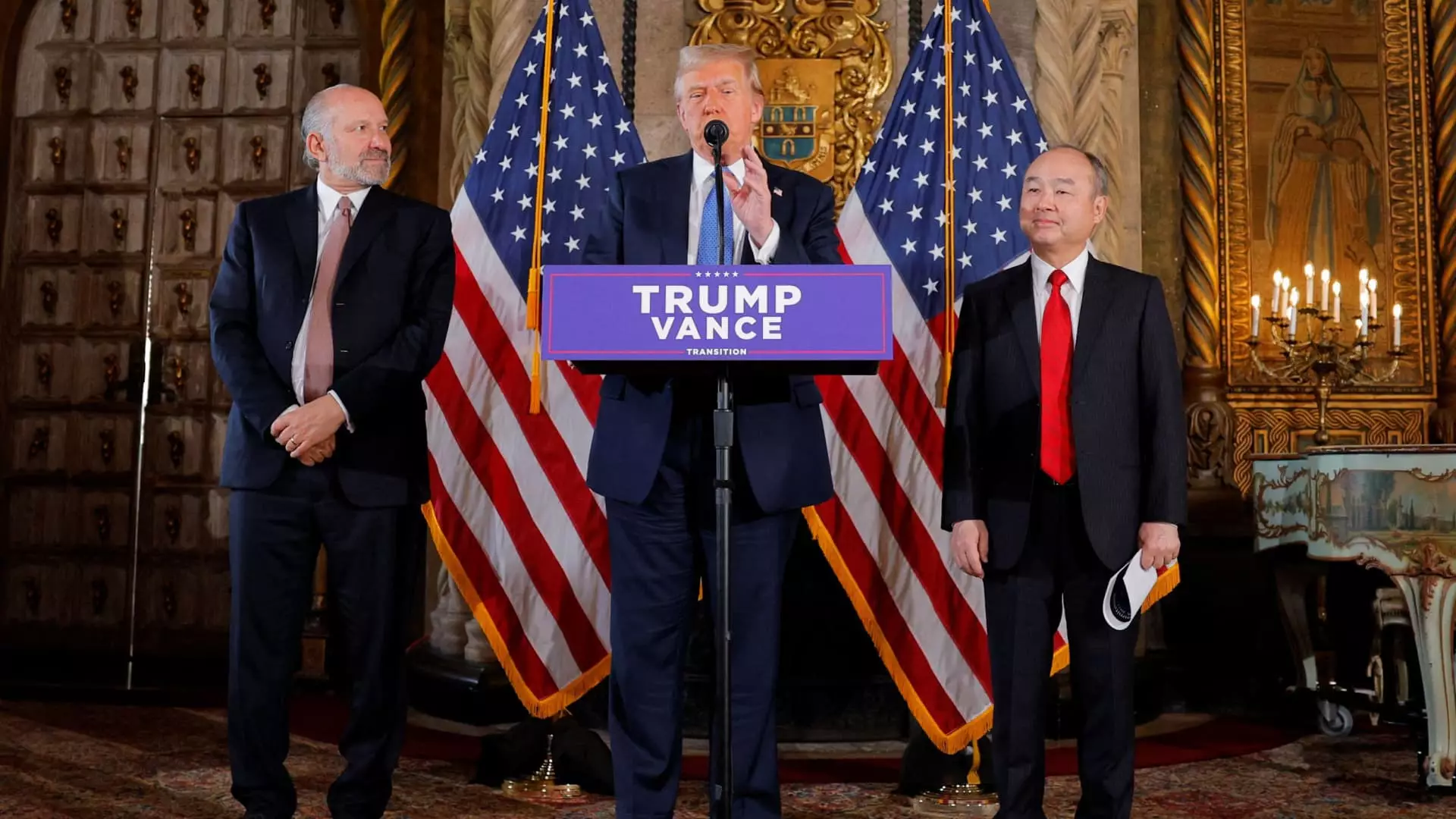In a striking announcement that potential repercussions may echo for years, SoftBank’s CEO Masayoshi Son revealed plans to invest $100 billion in the U.S. economy over the next four years. This declaration was made during Son’s high-profile visit to Mar-a-Lago, the residence of President-elect Donald Trump. Their joint statement underscored a confident vision for America’s economic future, aiming to create a staggering 100,000 jobs, predominantly in the fields of artificial intelligence and related technological infrastructure. The sheer scale of this investment goals not only highlights SoftBank’s ambitions but also signifies a potential pivot in U.S.-Japan economic dynamics.
Son’s assertion of increased confidence in the U.S. economy following Trump’s electoral win encapsulates a broader sentiment in investor circles. His words indicated a forward-thinking approach as he stated, “My confidence level to the economy of the United States has tremendously increased with his victory,” indicating a belief that Trump’s presidency would herald a new era of growth. This investment marks a notable shift, reflecting how belief in leadership can resonate through global markets, galvanizing capital flow from firms like SoftBank to American shores. However, it raises questions about the implications of tying foreign investments to political figures, particularly ones as polarizing as Trump.
Historical Context and Future Projections
This isn’t the first time SoftBank has positioned itself as a significant player in U.S. economic affairs. Back in 2016, when Trump first marked his ascent to the presidency, Son announced a commitment of $50 billion aimed at creating 50,000 jobs. The consistent emphasis on job creation through technology investments hints at SoftBank’s strategic outlook and its desire to be at the forefront of emerging industries. Trump positioned this new investment as a pivotal moment for American industry, emphasizing that it represents a “monumental demonstration of confidence” in the nation’s future. This consistent pattern of sizable commitments may highlight Son’s strategy of leveraging political connections, although it also opens discussions about the sustainability of such frameworks in the face of changing administrations.
Son indicated that the funding for this ambitious project could arise from various SoftBank-controlled resources, including its Vision Fund and projects affiliated with Arm Holdings, the major chip manufacturer. Notably, a part of this investment could stem from capital already committed to previous ventures, such as the $1.5 billion poured into OpenAI, the leading force behind the infamous chatbot ChatGPT. This duality of fresh investments and reallocated funds illustrates SoftBank’s maneuvering capabilities within market fluctuations and technological advancements, further indicating the firm’s foresight in a rapidly evolving landscape.
SoftBank’s pledge encapsulates not just a financial commitment but a broader narrative of optimism and ambition that transcends borders. As technology continues to reshape the economic fabric, this strategic investment fosters both collaboration and competition, positioning the U.S. and Japan as vital players in the future tech ecosystem. What remains to be seen is how this infusion of capital will translate into tangible job creation and innovation amidst a milieu of political volatility and market uncertainties. It is a pivotal moment that reflects both the potential and the challenges inherent in modern-day economic diplomacy.

